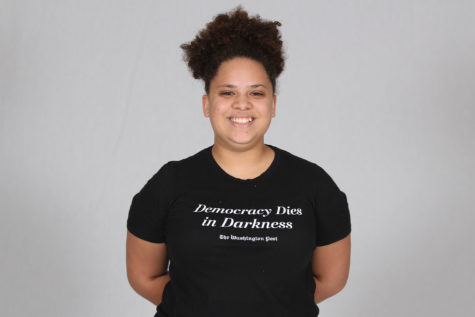Ethnic studies elective classes offered next year
April 27, 2017
Majority-minority.
This confusing term is what Austin was deemed to be as of 2010 when the percentage of different ethnic groups outnumbered the percentage of white people living in Austin.
Because Austin is constantly growing and diversifying, Austin ISD is rolling out an Ethnic Studies course to keep up with these trends and raise awareness of ethnic groups within Austin. Ethnic
Ethnic Studies is a new course being piloted next year at Akins, Anderson, Travis, Austin, LBJ, and Reagan High Schools in order to help students be college-, career-, and life-ready. It will be an elective course, although originally it was proposed as a mandatory graduation credit for all Austin ISD students. School board trustee Paul Saldaña said the community’s increasing diversity is one of the driving forces motivating Austin ISD to offer the course.
“We have nearly 100 languages spoken in our schools, we serve about 1,100 refugee students from 42 different countries, and we have dual language programs in about 68 of our campuses, ” Saldaña said. “So the whole intent or thought behind ethnic and cultural studies is basically to introduce the experiences of the students that make up our classrooms.”
“Let’s say that I’m Irish, but there’s never been an opportunity to talk about my Irish heritage,” Saldaña said. “If that becomes part of the curriculum in the classroom, then that would serve as an inspiration for me to be involved more passionately in my studies and pique my interests.”
The Ethnic Studies curriculum will have students read primary and secondary sources and analyze the state of groups within the United States through a historical lens. SEL teacher Christina Garcia-Mata said she thinks this will provide a good opportunity for students to learn about different types of history. “When I was in high school, I didn’t learn much about
“When I was in high school, I didn’t learn much about Chicanismo or being a Chicana,” she said. “When I got to college and started being able to pick what kinds of history I wanted to learn, whether it was hip-hop or music or women’s history, I remember feeling like I had been cheated.”
In November of 2016, the Texas State Board of Education reviewed a textbook for a newly introduced Mexican-American Studies course. Because it reinforced stereotypes about Mexican-Americans, characterizing them as lazy with a culture of “mañana,” the book was met with immense backlash from Latino groups across the state. Saldaña said that they have taken these events into account choosing course materials for Ethnic Studies, and will work with the University of Texas and nonprofit Nuestro Grupo, who spoke out against the Mexican-American studies textbook in 2016, to make the materials research-based.
“Most importantly, it would be sensitive and relative to the course conversations, so that’s why we’re going to pilot it in the six schools next year,” Saldaña said. “There’ll be an opportunity to review the process and make amendments to the program moving forward.”
After the course is piloted, it will be amended and introduced into all 17 Austin high schools. Junior Isabel Leggett said she is interested in taking the course.
“I think it will really broaden my view of the world and make me more well-rounded as a person,” she said.







